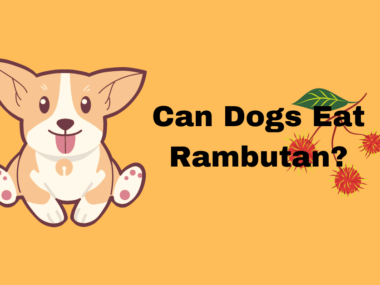Discovering the Truth About Radishes and Our Canine Companions. Are you a proud dog owner who is always looking for ways to keep your furry friend happy and healthy? If so, you’ve probably wondered about sharing your favorite foods with your four-legged pal. One such food that often comes to mind is radishes. You may be wondering, “Can dogs eat radishes?” Well, wonder no more! In this article, we’ll delve into the world of radishes and uncover whether they can be a safe and nutritious addition to your dog’s diet.
Table of Contents
Understanding Radishes
Radishes are a delightful root vegetable many enjoy in our salads and as a crunchy snack. These vibrant veggies boast a crisp texture and a peppery flavor, adding a lovely zing to various dishes. But what exactly do radishes bring to the table in terms of nutrition? Let’s take a closer look.
Radishes packed with essential vitamins and minerals that can benefit our bodies. They contain vitamin C, which supports a healthy immune system, and vitamin K, which plays a vital role in blood clotting. Additionally, radishes are a good source of fiber, which aids in digestion and can help to maintain a healthy weight.
Dogs’ Dietary Needs
Before we determine whether dogs can eat radishes, it’s essential to understand their unique dietary needs. Dogs have another digestive system than humans, and their nutritional requirements vary accordingly. A balanced canine diet typically consists of proteins, carbohydrates, fats, vitamins, and minerals. While some human foods are safe for dogs, others can be harmful or toxic.
READ ALSO: Can Dogs Eat Strawberries?
Can Dogs Eat Radishes?
Now, let’s address the pressing question: Can dogs eat radishes? The answer is yes but with some critical considerations. Safety should always be a priority when introducing new foods to your furry friend’s diet.
SEE ALSO: Can Dogs Eat Ginger?
Safety Considerations
First and foremost, it’s crucial to be mindful of potential choking hazards. Radishes can be pretty firm, incredibly when raw, so make sure to cut them into appropriate sizes to avoid any accidents. Additionally, like humans, dogs can have allergies. If you recognize any signs of an allergic reaction, such as itching, swelling, or difficulty breathing, it’s best to steer clear of radishes.
Health Benefits for Dogs
While radishes may not be a dietary staple for dogs, they can offer some potential health benefits when given in moderation.
Low-Calorie Option
If your canine companion could use a little help shedding a few pounds, radishes can be a great snack to incorporate into their diet. These veggies are low in calories but high in fiber, which can help your dog feel fuller for longer, reducing the temptation to overeat.
Fiber Content for Digestive Health
Just like humans, dogs can sometimes experience digestive issues. The fiber content in radishes can aid in promoting a healthy digestive system for your furry friend. It can help regulate bowel movements, prevent constipation, and keep their tummies happy.
Vitamins and Minerals
Radishes are rich in vitamins and minerals that can improve your dog’s health. For instance, they contain potassium, essential for proper nerve and muscle function. Additionally, radishes provide small amounts of other nutrients like vitamin C, vitamin K, and folate, which can support your dog’s overall well-being.
READ: Can Dogs Eat Peanuts?
Risks and Considerations – Can Dogs Eat Radishes?
While radishes can offer certain benefits, it’s essential to be aware of potential risks and considerations.
SEE: Can Rabbits Eat Watermelon Rinds?
Oxalates and Medical Conditions
Radishes contain oxalates, which can be problematic for dogs with certain medical things, such as kidney stones. If your dog has a history of such requirements or urinary issues, it’s best to consult your veterinarian before introducing radishes into their diet.
Digestive Issues
Every dog is unique; some may be more sensitive to new foods than others. Introducing radishes into your dog’s diet too quickly or in large quantities can lead to digestive issues such as gas or diarrhea. As with any new food, starting slightly and monitoring your dog’s reaction before increasing the portion size is essential.
Feeding Methods and Moderation
Radishes should always be served in moderation and as part of a balanced diet. They should always be the same as your dog’s main meals or essential nutrients. Remember, variety is vital when that comes to your dog’s diet. Consider incorporating other dog-friendly vegetables such as carrots, green beans, or sweet potatoes to provide diverse nutrients.
Alternative Vegetables for Dogs
If you still need to figure out feeding radishes to your furry friend, don’t worry! Plenty of other vegetables are generally safe and beneficial for dogs.
Carrots
Carrots are a fantastic choice for dogs. They’re low in calories, high in fiber, and packed with vitamins, including vitamin A. Chewing on carrots can also help promote dental health by reducing plaque and tartar buildup.
Green Beans
Green beans are another nutritious vegetable that dogs can enjoy. They’re low in calories and contain essential vitamins and minerals. Green beans can be a healthy and crunchy treat, perfect for rewarding your furry friend during training sessions.
Sweet Potatoes
Sweet potatoes are a nutritious and tasty option for dogs. They’re an excellent dietary fiber, vitamin C, and vitamin B6 source. Sweet potatoes can also boost energy while supporting a robust immune system.
SEE: Can Dogs Eat Black Beans?
Conclusion – Can Dogs Eat Radishes?
In conclusion, dogs can indeed eat radishes, but important considerations must be remembered. While radishes offer potential health benefits such as weight management, fiber content, and essential vitamins, it’s crucial to introduce them gradually and in moderation. Always prioritize your dog’s safety and consult your veterinarian if you have any concerns or if your dog has underlying medical conditions.
Remember, variety is the spice of life, even for our furry companions! Alongside radishes, explore other dog-friendly vegetables like carrots, green beans, and sweet potatoes to provide your beloved pup with a well-rounded and nutritious diet. By understanding what foods suit your dog and considering their individual needs, you can ensure they lead a joyful and healthy life by your side.
So, the next time you’re preparing a radish salad, go ahead and share a crunchy piece with your dog. Just remember, a little radish goes a long way in keeping their tails wagging and their taste buds satisfied!




